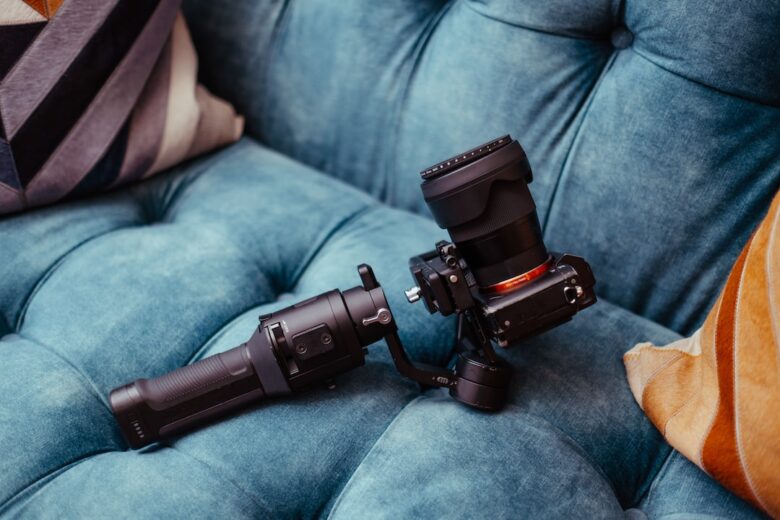Maximizing your PC’s potential with hardware is a surefire way to improve its performance. Choosing the best components and upgrades can enhance speed, efficiency, and general functioning. Gamers can expect better frame rates and professionals can optimize their productivity.
As technology quickly advances, it’s important to be aware of the latest hardware. From processors to memory modules and storage drives, every component is vital in determining your PC’s capabilities. Upgrading these can drastically boost your system’s performance.
Knowing compatibility is an important part of hardware optimization. Though fancy components can be tempting, it’s essential to make sure they work with your setup. Researching compatibility charts and consulting experts can help you avoid future problems.
To determine what needs enhancing, identify where your PC’s performance may be lacking. For example, if you experience slow loading times or lag during gaming, upgrading the storage drive or graphics card could be the answer.
Pro Tip: Before buying new hardware, do research on reliable brands and read customer reviews. This will help you make wise decisions and steer clear of potential issues.
By taking advantage of hardware enhancements, you can give your system new life without breaking the bank. Staying up to date on tech developments allows your PC to stay at peak performance. Unlock the power of your machine – you won’t regret it!
Understanding Hardware Performance Boosters
Performance Boosters unlock your PC’s full potential. They can boost speed and efficiency, for a smooth user experience. Let’s explore how they work.
Hardware Performance Boosters: Let’s take a closer look at components that make these boosters so effective. This table shows what they do:
| Component | Benefit |
|---|---|
| Solid-State Drive | Faster data access for quicker responses |
| Graphics Card | Better visuals and gaming experience |
| CPU Upgrade | More processing power for quicker tasks |
| Memory Upgrade | Greater multitasking capabilities |
These components work together to optimize your PC. There are other performance boosters too, like liquid cooling systems, high-speed RAM modules, and overclocking tools.
Pro Tip: Ensure compatibility with existing components when upgrading. Upgrading one component may need complementary upgrades too, to avoid bottlenecks or compatibility issues.
Types of Hardware Performance Boosters
Using hardware to boost the performance of your PC can really up its game! Let’s look at the various kinds of hardware performance boosters that can help unlock your comp’s true potential.
See the table below for the types of hardware boosters:
| Boosters | Description |
|---|---|
| Graphics Card | Get a powerful graphics card for better visuals and gaming. |
| RAM | Increase RAM capacity for better multitasking and speed. |
| Solid-State Drive | Replacing traditional hard drives with SSDs boosts data transfer speeds. |
| Processor | Upgrade to a faster processor for more comp power and responsiveness. |
| Cooling System | Invest in an efficient cooling system to avoid overheating. |
Now, let’s learn more about these boosters.
A high-end graphics card boosts not only gaming, but also video editing and rendering, making it perfect for content creators.
More RAM helps you run memory-intensive applications and multiple programs at once without lag, boosting productivity.
SSDs are great for speeding up data transfer, loading software, games, and files quickly.
Faster processors make resource-intensive tasks like video encoding or 3D modeling smoother and faster.
Efficient cooling systems keep your PC at optimal temp even when doing demanding tasks, preventing thermal throttling and preserving peak performance.
These hardware performance boosters working together can unlock your comp’s true potential, enabling you to get great results in resource-intensive activities.
For example, this gamer had low FPS in graphically intense games. After upgrading their graphics card, they saw a noticeable performance boost. The visuals and gameplay improved greatly, making their gaming experience truly immersive and fun.
Factors to Consider Before Upgrading
Before upgrading your PC, consider these three things:
- Compatibility: Check system requirements and specs. Avoid any issues.
- Budget: Set a realistic budget for components and extra expenses.
- Future-proofing: Invest in components that last and keep up with advancements.
Research and gather info on options in the market. Read reviews, compare prices, and ask experts before deciding.
John learned a lesson about considering all factors before upgrading. In 2010, he upgraded his graphics card without checking compatibility. This caused many technical issues and he had to spend more money on repairs and replacements.
Step-by-Step Guide to Upgrading Your PC
To experience improved speed and efficiency, upgrade your PC! Here are the steps to follow:
- Assess performance first.
- Identify which components need improvement.
- Research compatible hardware.
- Purchase and install the new parts.
- Follow manufacturer instructions carefully.
- Optimize software settings too.
- Invest in quality hardware for maximum gains.
- Backup important data before starting!
Additional Tips and Tricks for Maximizing Performance
Maximizing performance is key to unlocking your PC’s true potential. Here are some tips to boost it to the next level!
- Optimize Your Storage: Clean up unused files, uninstall unneeded programs, and try using disk clean-up tools or software. This clears out your system, freeing up valuable space for improved speed.
- Upgrade Your RAM: Adding more memory can massively improve multitasking and responsiveness. This lets you run multiple apps without lags or slowdowns.
- Keep Your Drivers Updated: Always keep your drivers up-to-date. Outdated ones can lead to compatibility issues, errors, and decreased performance.
Ventilation is important too! Good airflow prevents overheating, which can throttle performance. Clean fans, vents, and heat sinks using compressed air or cleaning tools.
Also, disable unnecessary startup programs that consume CPU power and memory upon booting. These affect speed and responsiveness.
Small changes can make a huge difference. Follow these suggestions for smoother, faster PC performance!
Conclusion
Technology is ever evolving. Unlocking your PC’s full potential can be a game-changer. Here, we’ll explore ways to revolutionize your computing experience.
Increase RAM, storage capacity, graphics cards, and processors. Each part is crucial for better efficiency and speed.
Invest in extra RAM to improve multitasking. Seamlessly run multiple applications with no lag or slowdown. Increase storage capacity for more data and faster file transfers. A powerful graphics card is essential for gaming and content creation. Visual quality and rendering times will improve.
Upgrade your processor to get faster processing speeds and more cores. Higher clock speed and extra cores help distribute workloads. With these upgrades, productivity will skyrocket for both complex projects and resource-intensive activities.
Regularly update drivers and firmware for optimal performance. Address bugs, security vulnerabilities, and compatibility issues. Utilize hardware to its fullest potential while enjoying improved stability and functionality.
Optimizing software settings is also important. Adjust power options, disable unnecessary startup programs, and run regular maintenance. This will ensure your PC’s potential is maximized.
Frequently Asked Questions
Q: What are performance boosters for PCs?
A: Performance boosters are hardware components or tools that enhance the speed and overall performance of a PC. Examples include upgrading the RAM, replacing the hard drive with a solid-state drive, or adding a dedicated graphics card.
Q: How does upgrading RAM improve PC performance?
A: Upgrading RAM allows your PC to handle more tasks simultaneously and improves overall speed. It reduces the need for virtual memory access, providing faster access to data and allowing for smoother multitasking.
Q: Can replacing a hard drive with an SSD boost PC performance?
A: Yes, replacing a traditional hard drive with a solid-state drive (SSD) can significantly boost PC performance. SSDs have faster read and write speeds, ensuring quicker boot times, faster file transfers, and improved overall responsiveness.
Q: Will adding a dedicated graphics card improve gaming performance?
A: Yes, adding a dedicated graphics card can greatly enhance gaming performance on a PC. It takes the load off the CPU, allowing for smoother and more detailed graphics, higher frame rates, and an overall improved gaming experience.
Q: Are external cooling systems worth investing in for better PC performance?
A: External cooling systems, such as liquid cooling or high-performance fans, can help maintain lower temperatures inside the PC. By preventing overheating, they ensure that components can operate at their best, resulting in improved performance and longevity.
Q: Can overclocking improve PC performance?
A: Overclocking is the process of increasing the clock speed of a computer’s component higher than its factory settings. It can provide a performance boost, but it also increases heat generation and may void warranties. Overclocking should be done with caution and proper cooling in place.



